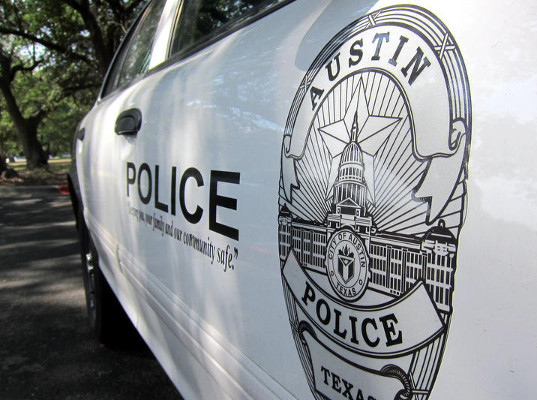

By: Katie Urbaszewski
Source: MyStatesman
When terror strikes in a Paris or a Brussels, police in Austin step up their patrols around mosques — not to search for terrorists but to ensure safety of Muslims here.
“Whenever these attacks happen, we get a call from a police department saying, ‘We’re patrolling. You might be seeing more visibility,’ ” said Nur Ahmad. Ahmad — the North Austin Muslim Community Center’s imam, or priest — said he appreciates the department’s presence.
After such large-scale terrorist attacks by jihadists, the fear of other terror attacks may grow among some non-Muslim Americans. Austin imams said American Muslims share those fears but also must worry about confrontations, vandalism and violence committed by people who take their frustrations out on local Muslims. In November, a few days after the terrorist attacks in Paris, members of the Islamic Center of Pflugerville found the mosque’s door covered in feces.
Muslims in America have been a frequent topic on the presidential campaign trail, with the rhetoric gaining intensity after Paris and Brussels. Donald Trump has called for a database of Muslims in America and for a ban on Syrians entering the country “until we find out what the hell is going on.” Ted Cruz called for police to “patrol and secure” Muslim neighborhoods in the United States.
The Texas senator, whose hometown of Houston has the largest Muslim population in Texas, said “we need to empower law enforcement to patrol and secure Muslim neighborhoods before they become radicalized.”
A spokesperson from the Cruz campaign said in a statement that the Texas Republican believes “innocent, peaceful Americans, no matter their faith, deserve to live in safe neighborhoods … and that includes preventing radical Islamic terror cells from taking root in them.”
“The police should have every tool available to follow leads and take action against those who would do us harm. That is what Cruz is calling for and it is the basic responsibility of our elected leaders — to prioritize the safety of our citizens,” said Alice Stewart, communications director for Cruz’s presidential campaign.
Austin Police Chief Art Acevedo sees the relationship between police and the local Muslim community differently.
“We understand that you keep a community safe by engaging and building a relationship with the community,” Acevedo said.
Austin imams said they wish non-Muslims understood that rhetoric that singles out Muslims can be counterproductive in their fight against terrorism, which they’re battling by teaching peace at their mosques.
“Surveillance and patrolling is not the solution,” said Attia Omara, the imam at the Islamic Center of Greater Austin. “Because we’re doing the patrolling. I’m doing the patrolling in my mosque. We watch their talk, hear what ideas they’re thinking about. Every single speech we give, every talk we give, minimizes the chance of radicalization.”
Omara, who is originally from Egypt, said he condemns terrorist attacks at his mosque when they happen throughout the world. He also views his mosque’s weekend Islamic school, which teaches religion classes for boys and girls 6 to 17, as a great way to keep young Muslims from becoming radicalized.
“We teach classes about how to be aware of radicalization and how to protect your soul,” Omara said.
Mohamed-Umer Esmail, the imam at Nueces Mosque in downtown Austin, said making that clear to Muslim children and teens is important to imams and parents alike.
“A lot of parents, since 9/11, stopped sending their children to the mosque for fear they might become radicalized,” Esmail said. “We have that in mind. We want to make sure our mosque stays away from any hint of radicalization. If any imam preached radical ideas, they’d be fired.”
Interfaith events in Austin have emphasized that the community is in this fight together as Americans, Ahmad said. University United Methodist Church at 2409 Guadalupe St. will host an interfaith event on April 28 to oppose anti-Muslim sentiment, according to church leaders.
These three imams said they have a good relationship with APD and Acevedo, an immigrant himself who was born in Cuba.
“We don’t see any benefit in demonizing an entire religion or culture,” Acevedo said. “When people feel demonized, ostracized, that’s an environment that creates extremist views. … In an event that they know somebody in their own community who may be succumbing to those extremist views, they know they can reach out to us and we’ll make sure they’re safe.”
As a regular part of Austin police cadet training, Esmail speaks to cadets about how to get to know the Muslim community and the challenges that Muslims face in Austin.
Mike Sheffield, who heads Austin’s Community Policing Division, said getting to know a community, rather than patrolling it, means working with people rather than against them.
“Rational people, they understand that,” Sheffield said. “You can’t fight an idea with guns and soldiers. You fight an idea with another idea.”



